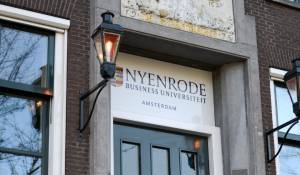Nice article.
One commenter on that article, Malaking, isn't thinking very scientifically. He says that the GMAT isn't effective because he got a low GMAT but a high GPA in the graduate degree he is half way through at UT. The GMAT *is* the most effective predictor of success at the GMAT. That doesn't mean it's a perfect predictor, just that it's the best we have. That article is about the GRE, and if Malaking had a high GRE but a low GMAT, and if UT had a number of students like that, then that would be interesting.
As an MBA interviewer, I think that students who perfect the GRE typically prefer it because they have weak quant skills and see it as easier. It's not necessarily easier. But it's an indicator of students who might need to be carried by their classmates when it comes to quant skills. And that means that schools that are light on quant, or that struggle to recruits, are more likely to accept the GRE.
But that's not what's happening at Harvard. It's a very selective and well resourced school which is able to put a lot of effort into assessing the whole application package, including recommendations from Harvard alumni. And many Harvard applicants are younger, meaning that their undergraduate transcripts are more meaningful. That means that Harvard can rely less on the GMAT or GRE.
Nice article.
One commenter on that article, Malaking, isn't thinking very scientifically. He says that the GMAT isn't effective because he got a low GMAT but a high GPA in the graduate degree he is half way through at UT. The GMAT *is* the most effective predictor of success at the GMAT. That doesn't mean it's a perfect predictor, just that it's the best we have. That article is about the GRE, and if Malaking had a high GRE but a low GMAT, and if UT had a number of students like that, then that would be interesting.
As an MBA interviewer, I think that students who perfect the GRE typically prefer it because they have weak quant skills and see it as easier. It's not necessarily easier. But it's an indicator of students who might need to be carried by their classmates when it comes to quant skills. And that means that schools that are light on quant, or that struggle to recruits, are more likely to accept the GRE.
But that's not what's happening at Harvard. It's a very selective and well resourced school which is able to put a lot of effort into assessing the whole application package, including recommendations from Harvard alumni. And many Harvard applicants are younger, meaning that their undergraduate transcripts are more meaningful. That means that Harvard can rely less on the GMAT or GRE.




